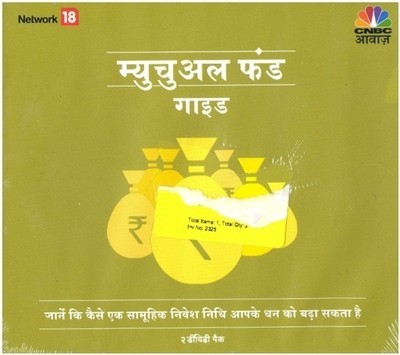Helpful Tips On Investing In Good Mutual Funds From
Post on: 13 Июнь, 2015 No Comment

A A A Print
For the novice investor, deciding where to place hard earned money may seem daunting and confusing. But it doesnt have to be. One of the simplest and most popular ways for new and experienced investors to invest their money is through mutual funds.
What Is A Mutual Fund?
A mutual fund is a pool of money contributed by individuals, companies or other organizations that is collectively used to purchase stocks, bonds and other investment products. The mutual fund is managed by a fund manager whose job is to monitor the funds performance and adjust the investments as necessary.
According to Investopedia, there are more than 10,000 mutual funds in North America, most of which fall into one of three categories.
Main Types Of Mutual Funds
Money Market Funds
These are funds that are required by law to invest in low-risk securities such as government securities . certificates of deposit (CD) and commercial paper. Typically, the earned interest on a money market fund is about two times that of a regular savings account. Money market funds have relatively low risk when compared to other types of investment vehicles.
Bond Funds
These funds contain a variety of bonds ranging from corporate bonds to municipal and government bonds. These funds generally assume a higher risk than money market funds because bonds are generally riskier investments than government securities and CDs. According to the Securities and Exchange Commission, some risks associated with bond funds include:
Credit. Bond funds that invest in companies with poor credit ratings are generally subject to higher risk; funds that invest in bonds with investment grade credit ratings are less risky.
Interest Rates. The market value of bonds will go down when interest rates go up, regardless of the type of bond. Therefore, bonds have interest rate risk.
Prepayment. If a bond is paid off early by its issuer, the fund may not be able to reinvest the proceeds into another investment with as high of a return or yield.
Equity Funds
These are funds that invest in different stocks. Equity funds represent the most common type of mutual fund. They are also the most risky. Equity funds are subject to the performance of its component stocks, which fluctuate with the strength of the economy and demand for particular products and services.
How To Choose The Right Mutual Fund
Degree Of Risk
A critical consideration when trying to select a mutual fund is determining how much risk you are willing to accept. When dealing with any investment product, there are generally three categories of risk:
- Conservative. These investments trade lower returns for greater stability.
- Moderate. These investments assume greater volatility and larger returns.
- Aggressive. Aggressive investments accept great swings in value in order to maximize the returns. With aggressive investments, your upside and downside potential are both significant.

How aggressive should the investment strategy be? Consider these guidelines when choosing a fund:
- Be Realistic. Consider how the volatility and fluctuations will affect the portfolio’s bottom line.
- Set A Comfort Level Of Risk. If you are uncomfortable with the chance of losing a large percentage of money, consider a less volatile fund.
- Diversify. Be sure to spread investments across a variety of fund types. This provides a reduction in overall portfolio risks.
- Reassess Performance. Take the time to look at the funds performance on a regular basis. Consider moving investments if you are uncomfortable or not happy with the return objectives or it seems that the level of risk is no longer appropriate for the situation.
In addition to selecting the amount of risk you want to take, you will also need to take other factors into consideration. Consider the following factors when choosing a mutual fund:
Fees And Expenses
Understand the investor fees and charges. Funds with higher fees will need to perform better than those with lower fees in order to generate the same returns. In some cases, the difference in fees can be quite substantial. The Financial Industry Regulatory Authority (FINRA) has developed a cost calculator to help compute how fees and expenses affect returns.
There are several potential fees to be aware of including:
- Sales Charge (Load) on Purchases
- Purchase fee
- Deferred Sales Charge (Load)
- Redemption fee
- Exchange fee
- Account fee
- Operating expenses (including management and distribution fees)
Change In Operations
Be sure to ask if there have been any recent changes in the funds operations, such as a change in the investment strategy or advisor. Investors may decide to reconsider a well performing fund if the fund manager responsible for the successful maintenance of the fund is no longer a part of the team.
Tax Implications
Its important to remember that income tax will be owed on any ordinary dividends in the year they are received or reinvested. Investors will also be required to pay income tax on any interest earned. In addition, investors will pay capital gains taxes if they receive a capital gains disbursement. (For more information on the capital gains tax, see Understanding The Rules Of The Federal Capital Gains Tax .)
With thousands of choices on the market, choosing the right mutual fund can be difficult. To help investors differentiate the funds, Standard & Poor’s has developed Fund Management Ratings to assess the performance of some of the worlds leading investment funds. In addition, financial advisors are available to advise investors on the decision. Do your homework ahead of time and you will find a mutual fund in line with your investment objectives.














